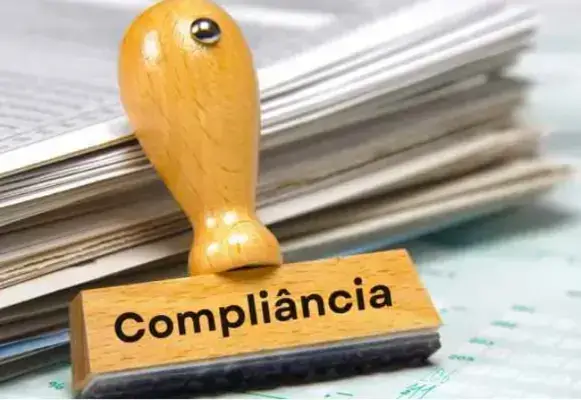Compliância occasionally spelled as compliance, embodies the intricate dance within a company to harmonize with relevant laws and regulations. It transcends legalities, weaving in moral imperatives, practical considerations, and operational intricacies. This intricate mosaic demands meticulous attention, proactive initiatives, and an unwavering commitment to ethical conduct across every facet of the organization’s landscape.
What is the purpose of Compliância?
Businesses should give compliance a priority for several reasons.
1: One of the main priorities is avoiding legal issues
A business or an officer within it will suffer dire repercussions if it is shown that they have broken the law. A company that faces legal action risks losing both money and the public’s trust.
2: Keeping both clients and staff in a risk-free environment
Products, services, and workplaces can be safer for clients and employees if safety, health, and ethical standards are followed. If this isn’t done, people’s safety and means of subsistence will be jeopardized.
3: Preserving one’s flawless reputation
Morally-driven businesses typically experience greater success. On the other hand, a company’s client base, brand, and reputation may suffer greatly from noncompliance.
4: Increasing Production and Efficiency
Through audits, documentation, and corrective measures, businesses may find ways to increase efficiency and save costs as part of the compliance process. Employees who are part of a compliance culture follow the law and value consistency.
5: Every business should incorporate compliance measures into its strategy plan.
Compliância saves time and money while lowering risk, protecting stakeholders, fostering brand loyalty, and enhancing operational effectiveness. Because of these factors, companies and their executives must prioritize compliance.
Benefits of Employing Compliância
Infusing compliance ensures steadfast adherence to rules, bolstering credibility and trust among stakeholders, vital for sustained success.
- Complância also aids in protecting private information. Strict compliance procedures are required to protect a company’s trade secrets, client records, intellectual property, and other private data.
- When Complância is applied, productivity rises. It is common to overlook the advantages of following the law, such as improved productivity and decreased wasteful spending.
- Furthermore, a firm commitment to compliance fosters an ethical culture within your business. Employees who have had enough training on the laws and regulations they must go by and who recognize the importance of following the rules will be more watchful in following them.
- If your compliance policies are strong, your credibility will increase. Companies that place a high priority on ethics and accountability have a greater chance of winning over loyal customers.
The Importance of Conformance in Several Sectors
In healthcare, banking, industry, and technology, fostering a culture of compliance is paramount. Each sector operates under distinct regulations to protect stakeholders and ensure equity. Particularly in finance, the stringent enforcement of KYC and AML standards is crucial in combatting financial crimes like money laundering, demanding meticulous identity verification and prompt reporting of suspicious activities.
Manufacturers ensure product quality and safety per regulations, averting legal issues and preserving brand integrity. Adhering to industry compliance is key to maintaining client trust and avoiding legal entanglements.
Crucial Elements of a Plan for Compliance
Implementing clear policies and procedures is essential for staff adherence. Regular updates and internal controls aid in swift breach detection and resolution. Foster transparency with monitoring and a complaint hotline to encourage accountability among staff.
1: Disciplinary Action and Enforcement
Recognize compliant efforts and enforce discipline fairly. Integrate these five elements into compliance programs for a robust framework.
2: Adherence in the Upcoming Ten Years
The more the digital age advances, the more compliance obligations there are. The future of compliance will be significantly impacted by changes in regulatory frameworks and technology.
3: Developments in Compliance Technology
Moreover, Artificial Intelligence (AI), machine learning, and data analytics stand as pioneers in reshaping the compliance arena. These futuristic technologies offer automation of compliance processes, uncovering trends, and proactively averting violations.
Conformity: Essential Information
Additionally, The industry is beginning to tremble with several innovations in compliance. As an illustration, rules will tighten as the value of protecting personal data increases. When collecting, keeping, and using customer data, businesses must adhere to applicable privacy legislation.
Living sustainably and supporting ecology are growing in popularity. Environmental standards must followed by businesses, and they must also adopt sustainable practices and lessen their adverse environmental effects.
More Stricter Cyber Security Laws
Furthermore, International initiatives to standardize and harmonies compliance requirements have increased recently. Companies that have international operations will need to manage complicated compliance regulations to maintain seamless operations across borders.
The future success of organizations will largely depend on their capacity to accept these modifications and adjust to the changing compliance landscape.
Last Words
Additionally, NonCompliância casts a shadow over legal, financial, and public relations landscapes, inviting lawsuits, penalties, and reputational scars. Also, The trajectory of Compliância operations is guided by emerging industry shifts and pioneering technologies. Furthermore, These advancements offer organizations the tools to deftly traverse intricate regulatory landscapes, fortifying adherence, and safeguarding stakeholder trust in an ever-changing landscape of challenges.
FAQ’s
Q1: What are the primary domains of adherence?
A: Legal, financial, data security and industry-specific laws are examples of compliance sectors.
Q2: How can I evaluate the compliance of my organization?
A: To find compliance gaps, do routine risk assessments and audits.
Q3: What occurs when an individual disobeys?
A: Noncompliance may result in fines, legal action, damage to one’s reputation, and disruptions to business operations.
Q4: Is adherence a one-time task?
A: No, maintaining compliance calls for constant observation and modification.
Q5: How can startups make sure they’re complying?
A: Small businesses have access to compliance tools, specialists for advice, and up-to-date information on pertinent legislation.
